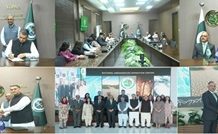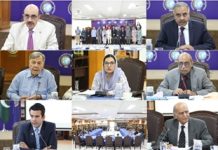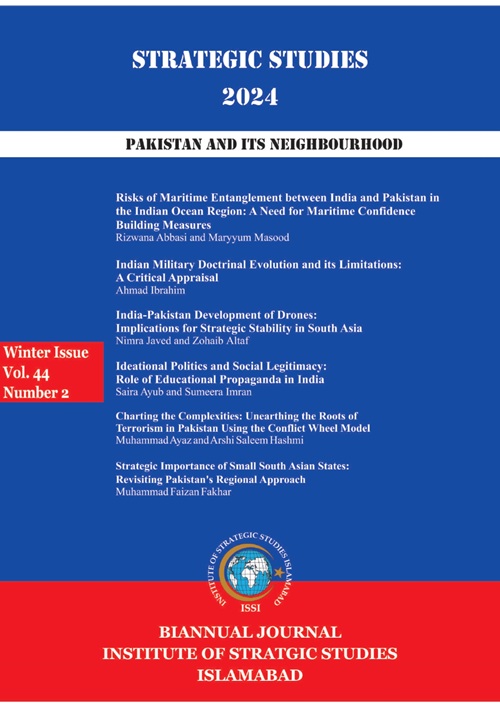The Emerging Narratives of Pakistan’s Soft Power *
Mr. Tahir Abbasi
Chief Editor, Hilal Magazine
The Co-relation Between Power, Hard Power and Soft Power
According to Hans Morgenthau, “by power we mean the power of man over the minds and actions of other men, a phenomenon to be found whenever human beings live in social contact with one another.” And, to him, “power may comprise anything that establishes and maintains the control of man over man.” Among its various branches, Hard Power comprises military power and economic power manifested in economic sanctions. In order to address the various limitations of Hard Power particularly emerging for the United States of America in managing post-Cold War international order, Joseph S. Nye, Jr. coined the term Soft Power and formulated its various forms. He defines Soft Power as “The ability to get the outcomes by attracting rather than coercing others.” It is important to note here that the co-relation between Hard and Soft Power is positive. Soft power is an alternative form of power and not a replacement of hard power. According to Joseph S. Nye, three important resources of soft power are:
- Culture
- Domestic policies, and values
- Substance, tactics, and style of foreign policy
A well-integrated positive mix of the three yields an effective soft power that in a way supports and compliments the very purpose of maintaining the hard power by a nation from another direction.
Few Pre-conditions for Sustainable Soft Power Projection
- It is a set of well-developed home-grown domestic high values and practices that carry the potential of universal acceptability through attraction.
- Promoted/ supported not as a mere exportable commodity in foreign market. Its export is a by-product of the entire process.
- Soft power is to be used delicately. It needs a combination of self-confidence, self-reliance and competence. The employment of soft power should not be seen as a project of ‘commercial marketing bureau’, but introduction to a set of values and practices that are an inalienable part of a state and society.
- It should be manifestation of public diplomacy at strategic level and should not be affected/ impaired by transitory ups and downs of state level policies.
Emerging Main Idea of Pakistan’s Soft Power
Pakistan has been in a state of war for the last 15 years. It is interesting to note that Pakistan’s emerging narrative of soft power stems from its successful use of hard power. Living through the turbulent times of terrorism that have resulted in melting down of state and society, violent anarchy and chaos in many other nations, Pakistan Armed Forces have absorbed, responded and are on success trajectory against terrorism in an unprecedented way. Today, Pakistan is emerging as a stable and secure state. The unprecedented successes of Pakistan’s hard power are generating images of reliability and positivity among foreign nations. The confidence in the state of Pakistan has been restored to a great extent, and this will further lead to positive outcomes in the realm of economy, culture and progressive values. It is a self-evident phenomenon that Pakistani state and society will rise from this point onwards. Today’s Pakistan is defined by two words ‘Resilient Pakistan’. Our successes, self-belief and self-confidence are enough for others to shun away the negative notions of failed state, anarchy and collapse.
Other Emerging Narratives of Pakistan’s Soft Power
- Like many other post-colonial states, Pakistan has a chequered history of power overlap among various state institutions. However, Pakistan is on the path of peaceful democratic transfer of power. The checks and balances are part of the transforming system.
- Pakistan is a responsible state that is fully committed and positively contributing towards regional peace.
- Pakistan is not a nuclear pariah state, but a responsible member of the international community.
- Pakistan’s nuclear capability is safe and secure. It bears no threat of falling into the hands of extremist forces.
- Pakistan’s economy is on rise. Pakistan is no more on the brink of ‘default state’ status.
- Pakistan rich culture will thrive in coming days.
Long-Term Narratives of Pakistan’s Soft Power
- Pakistan is a stable, peaceful and progressive state.
- Pakistan is an important member of international political order that supports peace, cooperation and harmony among nation states on the basis of sovereign equality.
- Pakistan’s economy is well-integrated into the world economy.
- Pakistan is a regional peace stabilizer. Pakistan security apparatus is not hegemonic and aggressive in nature. It follows doctrine of deterrence to ensure its survival which in itself is a war avoidance strategy to the acceptable limits.
- Pakistan is the hub of centuries old Indus Civilization. It has much to offer to the world art, culture and heritage.
- Pakistan has a huge treasure of educated and skilled youth. It is a world asset.
Pakistan’s Soft Power – Way Forward
- A vibrant and responsible media with international outreach.
- International standard research publications. It should also focus on translation of Pakistan’s classic and modern literature in at least six languages adopted by the United Nations.
- Pakistani cinema to the world stage. Currently, the US has 18000, India 21000 and Pakistan only 73 cinema screens.
- Pakistani cultural content comprising films, drama, theater, music, visual and performing arts etc. in a subtle way to carry positive strategic communication.
- Internationally compatible education standards, particularly through public schools as bulk of the student population attend these institutions.
- Dedicated resources for research and promotion of Pakistan’s soft power.
==============================================================================
*. Presentation made at a Seminar on “Pakistan’s Soft Power” organized by the Institute of Strategic Studies Islamabad (ISSI) on April 8, 2016












